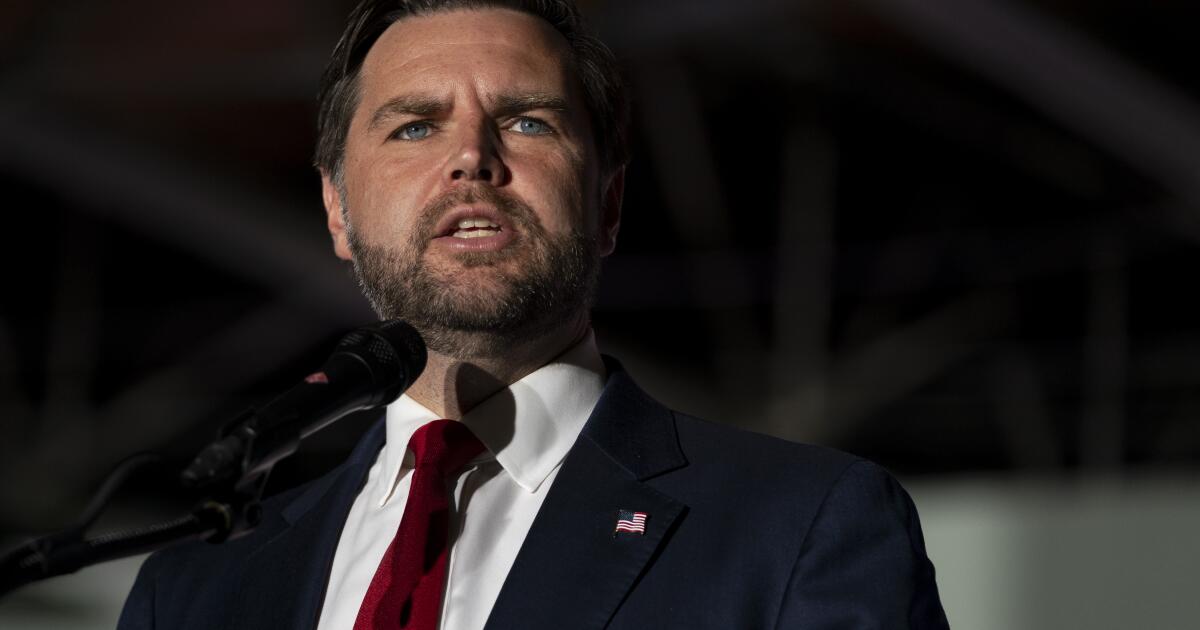Despite strong evidence that the average voter in the presidential election doesn’t care a hoot about international trade policy, Donald Trump and his running mate JD Vance have been promising to step up Trump’s tariff war with China.
As usual, they’re backing their promise with lies and other humbug.
“A tariff is a tax on a foreign country,” Trump asserted at an Aug. 19 rally in Wilkes-Barre, Pa., for example. “That’s the way it is, whether you like it or not. A lot of people like to say it’s a tax on us. No, no, no. It’s a tax on a foreign country.”
Questioned during an appearance on NBC’s “Meet the Press” on Aug. 25 about the effect of Trump’s tariffs on ordinary households — and economists’ conclusion that consumers pay the price — Vance asserted that “economists really disagree about the effects of tariffs.”
They’re wrong on both counts.
In truth, there’s no detectable disagreement among economists. In two polls conducted by the Booth School of Business at the University of Chicago, panels of economists unanimously agreed that American households would pay the price for Trump’s tariffs.
Those opinions held in a March 2018 poll and a May 2019 poll of panels of 43 leading academic economists. (The panels weren’t identical but did overlap; three respondents in the first poll didn’t provide answers and 11 didn’t answer or were “uncertain” in the second.)
The Harris campaign is more forthright about the cost of tariffs to the average consumer, although its specific estimates about the magnitude of the cost of tariffs Trump has proposed for the future — almost $4,000 a year on middle class households — can be questioned.



Uh duh…
It’s not uh duh for lots of folks, which is the root talking point.
Tariffs are seen as creating a vacuum that domestic producers will fill. The problem is it doesn’t happen immediately, or ever. There’s lots of additional conditions that all need to align for domestic business to fill the gap, outcompete, then survive beyond the tariff lifespan